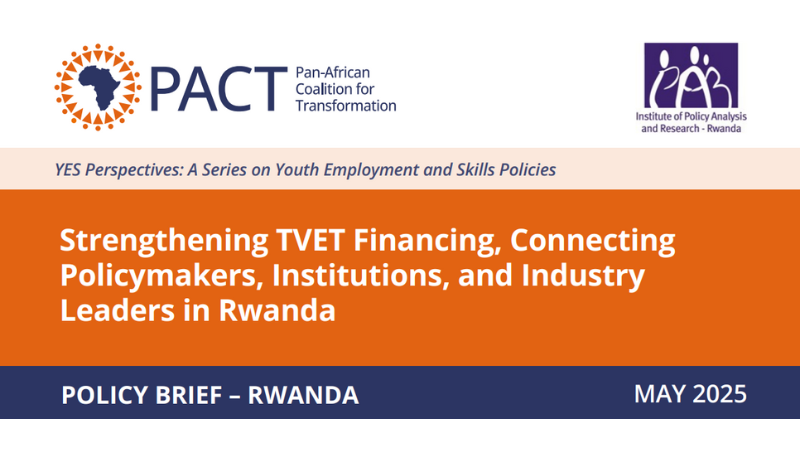
TVET institutions in several African countries face chronic underfunding, which significantly hampers efforts toward digital adoption and modernization. For example, only 20 percent of the education budget in Rwanda is allocated to TVET. This limited financial support constrains the ability of TVET institutions to invest in modern infrastructure, specialized equipment, and digital learning tools, ultimately affecting the quality and relevance of vocational training.
To address this gap, TVET institutions must prioritize the development of productive public-private partnerships. Such partnerships are key to building a dynamic, industry-aligned, and future-ready TVET ecosystem in Rwanda. But success requires more than money. Increased investment must be supported by strong private sector participation, engagement of development partners, and broad stakeholder commitment to Rwanda’s Vision 2050 goals.
This policy brief explores how public-private partnerships can be effectively harnessed to co-finance infrastructure, secure modern equipment, co-develop demand-driven and responsive curricula, expand apprenticeships and internship programs, and strengthen governance and quality assurance across Rwanda’s TVET institutions.


